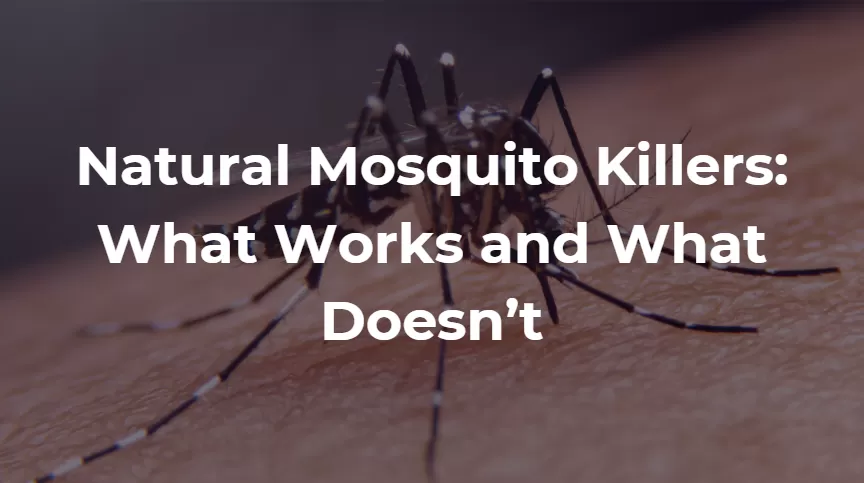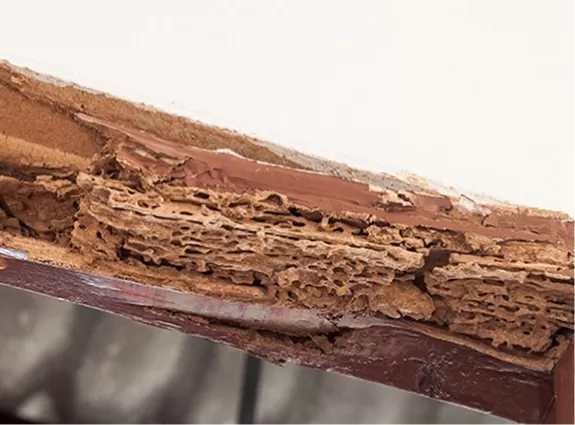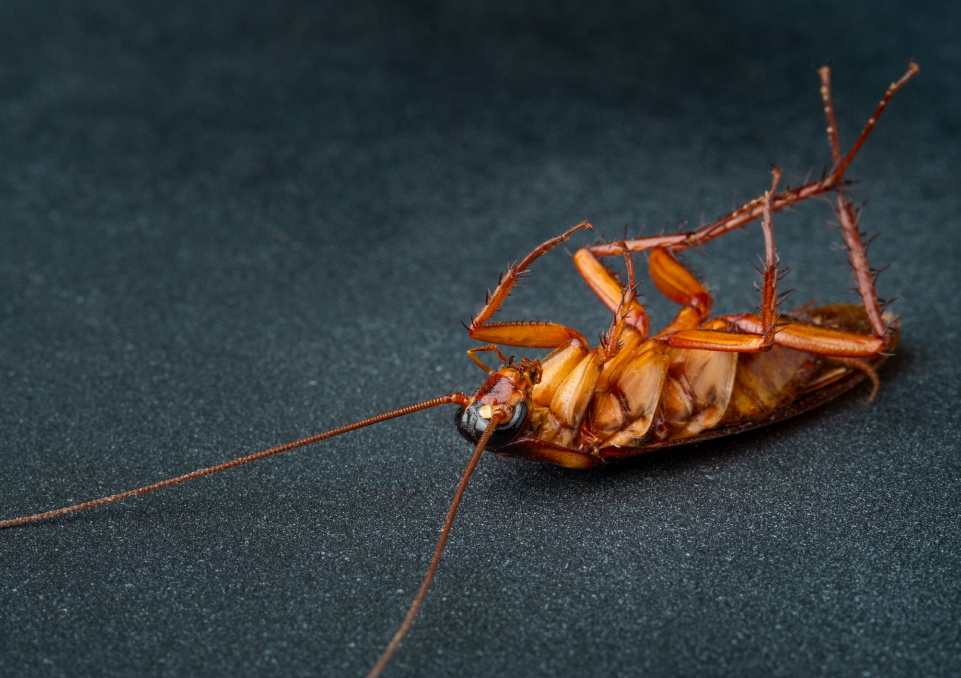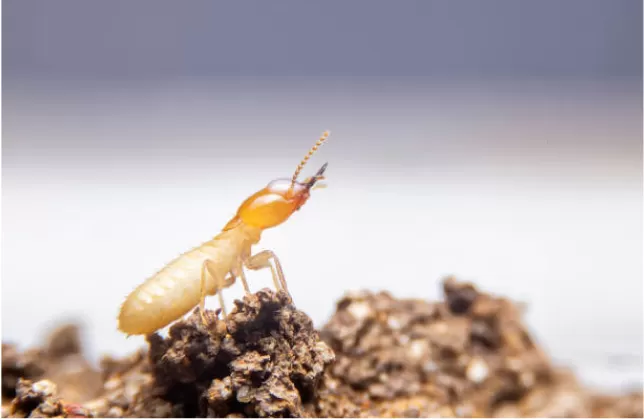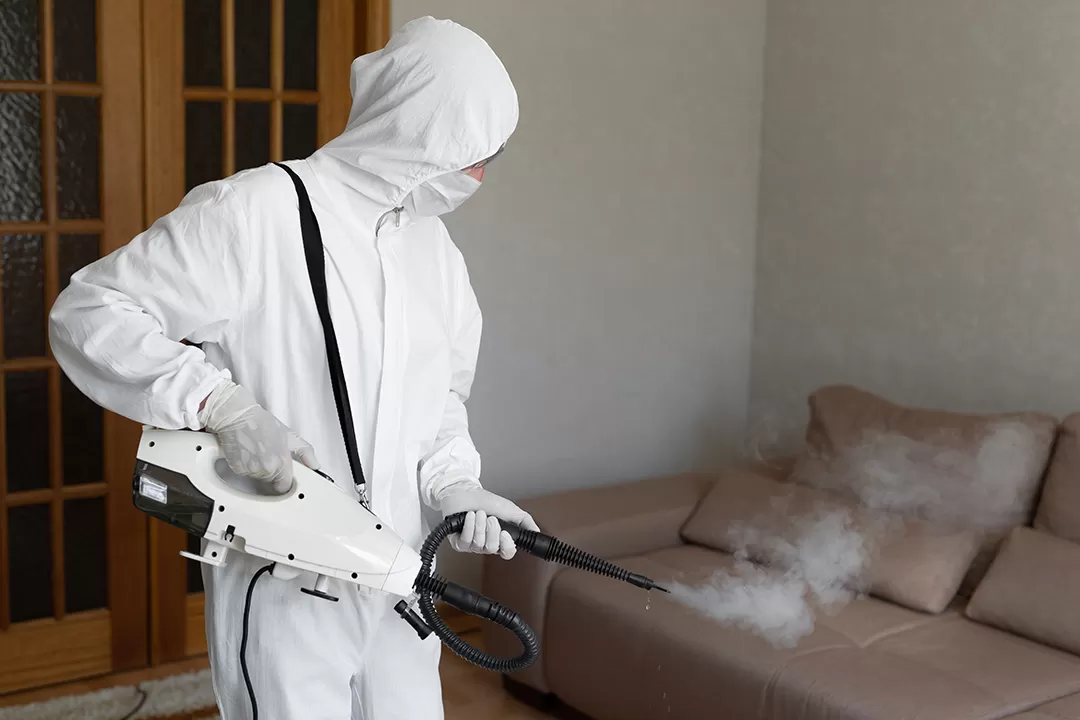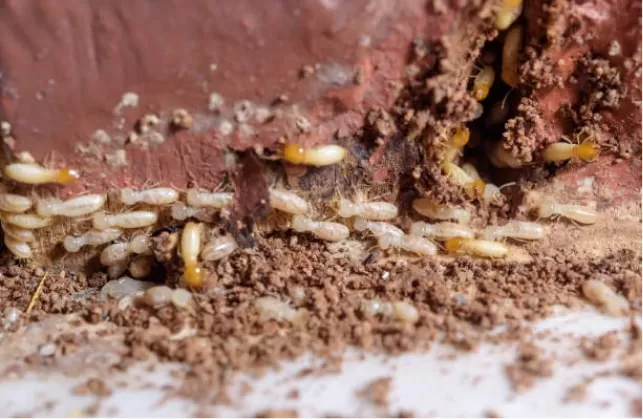Mosquitoes are not merely bothersome insects; they can significantly disrupt outdoor activities and present health risks. Understanding the factors that attract these pests is crucial for effective pest control and keeping them at bay, whether in your garden, camp, or office. This article delves into what draws mosquitoes in, dispels common myths, and clarifies what truly works—and what does not—when it comes to mosquito control. Additionally, it offers effective natural solutions and practical tips to prevent infestations within your home, making use of mosquito traps and environmentally sound insect repellents. Prepare to take back your space from these unwelcome intruders!
Key Takeaways:
Citronella candles, bug zappers, ultrasonic devices, eating garlic, and wearing dark clothing are all ineffective natural mosquito killers.
Essential oils, plants that repel mosquitoes, and DIY traps are effective natural mosquito killers, providing a non-toxic option for mosquito control.
To prevent mosquito infestation in your home, eliminate standing water, keep your yard clean, install screens, and consider hiring a professional pest control service.
What Attracts Mosquitoes?
Understanding what attracts mosquitoes is vital for effective mosquito control, particularly in tropical climates like Singapore, where mosquito-borne diseases such as dengue are a significant concern.
Mosquitoes are drawn to humans and animals for several reasons, including the carbon dioxide we exhale, our body heat, and certain scents released from our skin, making them an effective target for various mosquito killer products like traps and electronic mosquito killers. Additionally, these pests prefer outdoor environments, especially areas with standing water and dense vegetation.
This highlights the importance of implementing effective pest control measures to prevent infestations and reduce the risk of mosquito bites and the diseases associated with them, using products that kill mosquitoes within 24 hours.
What Are The Factors That Attract Mosquitoes?
Mosquitoes are drawn to several factors, including carbon dioxide, body heat, and specific scents emitted by humans and animals.
These small pests possess a remarkable ability to detect the vaporous signals that indicate a potential meal, making them susceptible to a variety of mosquito control methods, including electric mosquito killers. When an individual exhales, the release of carbon dioxide acts like a dinner bell, guiding mosquitoes toward the source. Additionally, the warmth of body heat beckons them closer, as they are always on the lookout for their next host. Their attraction to certain scents is not arbitrary; they are particularly responsive to compounds such as lactic acid and ammonia, which are commonly released through sweat.
Mosquitoes have a strong preference for environments that support their survival, such as areas with low wind and high humidity, which also serve as prime locations for deploying mosquito killer traps. They tend to seek out locations with standing water and thick vegetation, where they can breed and find shelter. Areas that combine these elements create the ideal conditions for nourishment and a suitable habitat, making them prime spots for mosquito activity.
What Are The Common Misconceptions About Mosquito Attraction?
There are several misconceptions regarding what genuinely attracts mosquitoes, such as the idea that certain body odors or light are significant factors in drawing them in.
Understanding the reality behind mosquito attraction is essential for effective management and prevention. Many individuals believe that wearing dark clothing increases their chances of attracting these pests; however, it is actually the carbon dioxide we exhale and our body heat that are of greater interest to mosquitoes than the color of our attire.
Some may think that enjoying a beer could enhance their appeal to mosquitoes, but studies indicate that while it might raise body temperature slightly, the effect on mosquito attraction is minimal.
Here are a few common myths clarified:
- Myth: Dark clothing attracts more mosquitoes. Reality: Mosquitoes are primarily attracted by scent and heat, which can be mitigated with effective insect repellents and mosquito killer products.
- Myth: Drinking beer makes you more attractive to mosquitoes. Reality: While some studies suggest a connection, it is the scent emitted after consumption that plays the larger role.
By addressing and debunking these myths, individuals can take informed steps toward effective pest control, allowing them to enjoy outdoor activities with reduced concern about unwanted bites.
What Doesn’t Work as Mosquito Killer?
When discussing mosquito control, it’s common for individuals to turn to a variety of products and methods that frequently fail to produce the desired outcomes, such as citronella candles, bug zappers, and ultrasonic devices. While these solutions enjoy popularity, they often fall short in effectively combating mosquitoes.
For instance, citronella candles can create a pleasant atmosphere, yet their effectiveness in repelling mosquitoes over larger outdoor spaces is quite limited compared to more powerful options like electric mosquito killer lamps. Likewise, bug zappers may eliminate some insects, but they do not significantly decrease mosquito populations.
By recognizing what doesn’t work, one can better concentrate their efforts on more effective solutions for mosquito control.
Citronella Candles
Citronella candles are often marketed as effective mosquito repellents, but the reality is that their effectiveness can be somewhat exaggerated. Many people mistakenly believe that simply lighting one of these candles will create a protective barrier against mosquitoes. While it is true that citronella oil has properties that can deter some mosquitoes, the protective range is quite limited. Essentially, the candle releases a small amount of citronella into the air, which might not be sufficient to provide consistent protection beyond a few feet. Research has shown that the effectiveness of these candles diminishes significantly in open spaces, making them less effective against highly mobile mosquitoes.
To achieve better protection, individuals might want to consider alternative methods. Options such as installing screens on windows and doors, using mosquito nets, or opting for more effective repellent sprays can provide a more reliable defense. These alternatives ensure a more comfortable outdoor experience, free from the persistent annoyance of biting insects.
Here are a few suggestions for enhanced protection:
- Consider using insect repellent sprays that contain DEET.
- Install window and door screens to keep mosquitoes at bay.
- Utilize mosquito nets when resting outdoors or in areas prone to insect activity.
Bug Zappers
Bug zappers are frequently marketed as a means to eliminate mosquitoes; however, they primarily attract and kill other flying insects rather than significantly reducing mosquito populations.
Many individuals believe that by using bug zappers, they are creating a safer outdoor environment, but the reality often tells a different story. These devices emit UVA light that attracts various insect species, including beneficial ones like pollinators. According to a study published in the Journal of Medical Entomology, nearly 90% of the insects trapped are non-target species, and less than 5% are actually mosquitoes.
Experts stress that, instead of relying on these ineffective devices, it is more advisable to adopt alternative methods such as natural repellents or targeted traps for better mosquito control. Implementing preventive measures, such as eliminating standing water and utilizing insect screens, is essential for maintaining a mosquito-free environment.
Thus, it is crucial to explore more effective solutions for managing these bothersome insects, such as electronic mosquito killers and mosquito traps, that catch and kill mosquitoes within 24 hours.
Ultrasonic Devices
Ultrasonic devices are often advertised as solutions for repelling mosquitoes through high-frequency sound waves. However, research indicates that these devices do not have a substantial effect on mosquito behavior.
These gadgets are frequently marketed as safe and convenient pest control options, producing sound waves that supposedly disrupt the communication and navigation systems of mosquitoes. Yet, comprehensive studies conducted by entomologists and published in peer-reviewed journals consistently show that such claims are exaggerated. In fact, many experiments have revealed that mosquitoes largely ignore the frequencies emitted by these devices, rendering them ineffective.
For those seeking relief from mosquitoes, it is more beneficial to consider proven methods, including a variety of insect repellents and mosquito killers available in different brands and price ranges:
- Insect repellents: Products containing DEET, picaridin, or oil of lemon eucalyptus have been shown to effectively keep mosquitoes at bay.
- Biological control: Introducing natural predators, such as bats or specific fish, can help manage mosquito populations.
- Eliminating standing water: Removing stagnant water sources where mosquitoes breed is a straightforward yet effective preventive measure.
By adopting these scientifically validated strategies, individuals can ensure a more effective approach to mosquito control.
Eating Garlic
A common myth suggests that consuming garlic can repel mosquitoes; however, scientific evidence does not support this assertion. Despite its popularity, which has led many to believe that this pungent bulb could function as a natural barrier against annoying insects, a closer examination reveals a different story.
The origins of the garlic myth can be traced to anecdotal reports and traditional practices, where various cultures have long celebrated garlic’s medicinal properties. Numerous scientific studies have consistently debunked the notion that consuming garlic has a significant impact on mosquito behavior.
Research indicates that while garlic may possess some insect-repelling properties when applied topically, its effectiveness as an oral repellent is quite limited. In fact, there are several alternatives that have proven to be more effective:
- Citronella oil: Commonly used in candles and topical repellents, citronella has been shown to offer considerable protection against mosquito bites.
- Picaridin: This synthetic compound is recognized for its effectiveness and is often recommended as a safe option for human use.
- DEET: Known as the gold standard in mosquito repellents, DEET remains effective for hours and is backed by extensive research.
Ultimately, opting for proven methods rather than relying on myths will provide far superior mosquito control from these bothersome insects.
Wearing Dark Clothing
Many people hold the belief that wearing dark clothing attracts mosquitoes more than lighter colors, but this notion is, in fact, a common misconception.
Research indicates that factors such as body heat, carbon dioxide output, and even specific scents play a much more significant role in attracting mosquitoes than the color of one’s clothing. This misconception likely arises from the idea that dark colors retain heat, making individuals seem warmer. However, scientists emphasize that it is the odors emitted by the body that greatly influence mosquito preferences.
Understanding this can give the power to individuals to take effective measures against these pests, regardless of what they choose to wear. Here are some strategies to consider:
- Opt for mosquito-repellent sprays containing DEET or Picaridin for maximum protection.
- Wear light, loose-fitting clothing to minimize skin exposure.
- Install screens and use nets when outdoors for better prevention.
By applying these scientifically supported strategies, anyone can significantly reduce their chances of attracting mosquitoes and enjoy their time outdoors.
What Natural Mosquito Killers Actually Work?
Natural mosquito killers present effective solutions for managing mosquito populations without the use of harsh chemicals. Essential oils, such as citronella, eucalyptus, and lavender, are recognized for their repelling properties and can be applied in various ways.
Moreover, certain plants, like marigolds and catnip, possess natural deterrent qualities and can be cultivated in gardens or positioned strategically around outdoor areas.
Additionally, DIY traps, mosquito killer traps, and homemade repellent sprays provide eco-friendly alternatives to traditional insecticides, making them both accessible and practical for homeowners seeking to minimize mosquito activity.
Essential Oils
Essential oils such as citronella, eucalyptus, and lavender are widely recognized for their ability to repel mosquitoes, making them popular natural alternatives for pest control.
These oils do more than just keep bothersome mosquitoes at bay; they also offer a variety of additional benefits that can enhance your overall well-being. For example, eucalyptus oil is celebrated for its soothing aroma, which can help alleviate respiratory issues. Meanwhile, lavender oil is often favored for its calming effects, contributing to stress reduction and promoting relaxation.
When utilizing essential oils as insect repellents, it is crucial to apply them safely. Here are some important tips to keep in mind:
- Always dilute essential oils with a carrier oil, such as coconut or jojoba oil, before applying them directly to the skin.
- Conduct a patch test to ensure that there are no allergic reactions.
- Use these oils in well-ventilated areas to prevent overwhelming scents.
For those interested in a homemade mosquito repellent, consider mixing 10 drops of lavender oil, 10 drops of citronella oil, and 5 drops of eucalyptus oil in a spray bottle filled with water. Be sure to shake the mixture well before each use and apply it to exposed skin as well as around your living space to create a protective barrier.
This natural blend not only has a pleasant fragrance but also effectively harnesses the power of nature to ward off those annoying mosquitoes.
Plants That Repel Mosquitoes
Certain plants, such as marigolds and catnip, are well-regarded for their natural ability to repel mosquitoes, thanks to their distinctive scents and oils.
These resilient plants not only enhance the beauty of gardens and patios, but they also act as effective natural pest deterrents, contributing to a more enjoyable outdoor experience. Incorporating mosquito-repelling plants into your landscaping can significantly lessen the reliance on chemical repellents while supporting a healthy ecosystem.
Here are some noteworthy options to consider:
- Marigolds: With their vibrant flowers and unique aroma, marigolds thrive in full sun and well-drained soil. They do require regular watering to keep the soil moist.
- Catnip: This perennial plant enjoys sunny locations and may spread if not contained. Once established, it needs only moderate watering. Plus, it’s a favorite among cats!
- Lavender: When planted in well-drained soil and sunny areas, lavender offers soothing fragrances that are excellent for repelling mosquitoes while attracting beneficial pollinators.
Utilizing these plants not only beautifies outdoor spaces but also fosters a chemical-free environment, making your area both aesthetically pleasing and functional.
DIY Traps
Creating DIY traps is an effective and environmentally friendly method to reduce mosquito populations without relying on chemical insecticides or expensive products.
These traps not only help minimize those annoying mosquito bites but also contribute to a healthier ecosystem by avoiding harmful chemicals that can disrupt local wildlife. With just a few simple materials and some straightforward steps, anyone can craft their own mosquito traps at home.
Here’s a quick overview of how to get started:
Materials Needed:
- Plastic bottles
- Sugar
- Water
- Yeast
Steps to Follow:
- Cut the plastic bottle in half.
- Mix sugar with hot water and allow it to cool.
- Add yeast to the sugar mixture.
- Invert the top half of the bottle into the bottom half and secure it.
By implementing these mosquito traps, individuals can significantly reduce mosquito populations and control the spread of diseases like dengue. w
How to Prevent Mosquito Infestation and Control in Your Home?
Preventing mosquito infestations in the home involves a comprehensive strategy that includes eliminating standing water, maintaining cleanliness, using mosquito repellent products, and utilizing professional pest control services as needed.
Mosquitoes thrive in stagnant water, making it essential to regularly inspect for and remove potential breeding sites such as clogged gutters, bird baths, and plant saucers. Furthermore, keeping your yard tidy and free from debris can significantly reduce the chances of mosquitoes taking up residence. Consider installing a mosquito killer lamp to attract and kill flying insects.
Engaging a professional pest control service can also offer personalized solutions to effectively manage and prevent mosquito populations, using eco-friendly and non-toxic options, ultimately creating a more comfortable living environment free from these unwelcome pests.
Eliminate Standing Water to Kill Mosquito Larvae
Eliminating standing water is essential for preventing mosquito breeding, as these insects rely on stagnant water for their larvae to thrive. Utilizing biological mosquito larvicides like micro Bti granules can be very effective in breaking the mosquito life cycle.
To effectively manage this issue, it is important to diligently inspect various potential sources around your yard and home. Begin by checking your gutters; if they are clogged, water can accumulate and create an ideal habitat for mosquitoes. Consider using mosquito control solutions that target larvae before they are old enough to bite.
Next, consider the following steps:
- Examine bird baths and change the water regularly, aiming for at least once a week.
- Don’t overlook pot saucers, which often trap excess water. It is advisable to empty and clean them regularly to eliminate any stagnant water. Alternatively, sprinkle Bti granules at recommended rates of 0.01-0.025gm per 1 liter of water to prevent mosquito larvae development.
- Additionally, look for open containers that might collect rainwater, such as buckets, tarps, or discarded tires.
Regular maintenance is crucial in minimizing these breeding sites. By doing so, you will not only create a healthier living environment for yourself and your family but also keep those pesky insects at bay. Consider using a mosquito killer trap for added mosquito control.
Keep Your Yard Clean
Maintaining a clean yard is crucial for preventing mosquitoes, as it eliminates potential hiding spots and breeding grounds. Using electric mosquito killers can further enhance your efforts by targeting any insects that remain.
Beyond safety, this practice can significantly enhance the overall appearance of the outdoor space. Regular yard maintenance includes tasks such as trimming back overgrown vegetation, which not only keeps the area looking tidy but also reduces dark, damp corners where mosquitoes thrive. Implement pest control measures like installing outdoor insect repellent systems.
Additionally, clearing away debris, such as fallen leaves and branches, can disrupt their life cycle further. To foster an environment that discourages these pests, one might consider implementing landscaping techniques, such as planting mosquito-repellent plants like citronella or marigolds, and installing water features that attract natural predators.
These strategies not only help deter mosquito presence but also contribute to a healthier and more enjoyable outdoor experience for everyone. Consider using a mosquito trap to catch and kill mosquitoes within 24 hours for immediate relief.
Install Screens on Windows and Doors
Installing screens on windows and doors serves as an effective barrier against mosquitoes, allowing for fresh air circulation while keeping these pests outdoors. For added protection, use insect repellent products ensuring a mosquito-free zone.
Along with offering protection from insects, screens also improve the ambiance of your living space by helping to maintain a fresh and pleasant atmosphere. They come in various types, including traditional fiberglass, aluminum, and retractable options, each offering its own unique set of benefits. For example, retractable screens can be conveniently stored away when not in use, ensuring that your view remains unobstructed.
In terms of installation, it’s important to accurately measure your windows and select appropriately sized frames for a snug fit. Regular maintenance is essential; periodic cleaning removes dirt and debris, ensuring that your screens continue to function effectively. Be sure to inspect them for any damage or holes and address any issues promptly, so your home remains a sanctuary free from unwanted insects.
Hire a Professional Pest Control Service
Hiring a professional pest control service can greatly improve your efforts in managing mosquitoes by offering tailored treatments and eco-friendly solutions, including the latest electronic mosquito control devices.
By seeking expert guidance, you can take advantage of customized treatment plans that specifically target the mosquito issues unique to your property. These specialists possess a deep understanding of mosquito behavior and breeding patterns, enabling them to implement strategies that are both effective and environmentally safe. They can provide options that include the use of mosquito repellent and eco-friendly insecticides.
- Regular inspections and services are essential in maintaining a mosquito-free environment.
- Scheduled treatments ensure that any potential breeding sites are addressed before the mosquito population can establish itself.
- Utilizing environmentally sound products helps minimize risks to pets, children, and local wildlife.
Ultimately, bringing in professionals not only provides immediate relief from mosquito issues but also promotes long-term prevention strategies, making your outdoor experience much more enjoyable.
Frequently Asked Questions
1. What are natural mosquito killers and do they really work?
Natural mosquito killers are non-toxic substances or methods used to repel or eliminate mosquitoes. While some may be effective in reducing mosquito populations, others may not be as effective.
2. What are some examples of natural mosquito killers?
Some common examples include citronella oil, garlic, essential oils, herbs, and certain plants like lemongrass and marigolds. These can be used in the form of candles, sprays, or planted around your home.
3. Do electronic mosquito repellent devices work?
While these devices may seem like an easy solution, there is little evidence to suggest that they are effective in repelling mosquitoes. They may also emit harmful chemicals or noise that can be harmful to humans and pets.
4. Are natural mosquito killers safe for pets and children?
Generally, natural mosquito killers are considered safe for pets and children as they do not contain harsh chemicals. However, it is always important to read the label and use them as directed to avoid any potential risks.
5. How can I use natural mosquito killers effectively?
To use natural mosquito killers effectively, it is important to understand their specific properties and how they work. For example, citronella candles may only be effective in a small area, while essential oils may need to be reapplied more frequently.
6. Can natural mosquito killers completely eliminate mosquito populations?
While some natural mosquito killers may be able to reduce mosquito populations, it is unlikely that they will completely eliminate them. It is important to use a combination of methods, such as removing standing water and using insect screens, to effectively control mosquitoes.

